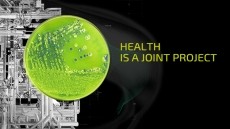Report shows gaps in pharma performance
gaps' in performance between the more operationally savvy and
those with less nous.
The six-month study conducted earlier this year, published by Informance International, found high performance pharmaceutical manufacturers outpaced their peers in operational metrics such as: operational availability by 77 per cent; overall equipment effectiveness by 73 per cent; and, reduced equipment failure by more than three-times. Researchers used the Informance Enterprise Manufacturing Intelligence Suite and IMPACT Advisory Services to collect data and discover correlations to operational success of tactical and strategic actions. The report found those companies that were more successful tended to focus more on operational excellence initiatives, goal setting, and measuring key performance indicators (KPIs). The report determined an organization's competitive position by ranking key performance indicators from each organization from best score to worst score. The top 20th percentile were named the best-in-class organizations. Despite the "substantial gap" described by the authors between the high performers and their counterparts, the researchers found even more "astonishing gaps" in performance when conducting another study comparing the pharmaceutical industry with the food and beverage industry. The researchers determined that best-in-class pharmaceutical manufacturers lagged far behind best-in-class counterparts in the food and beverage industry in numerous metrics. The best-in-class in the pharma industry had an overall equipment effectiveness of 39 per cent compared to the 63 per cent noted for the food and beverage counterparts. "Further analysis shows that availability is the primary reason pharmaceutical OEE lags behind other industries," the report said. The best-in-class pharmaceutical manufacturers had a cycle erosion - performance loss from minor stops, reduced speed and operator fatigue - of 9.5 per cent, while the remainder of the pharma industry experienced 12.5 per cent cycle erosion. The food and beverage companies experienced only 3.2 per cent cycle erosion. The report recommended average and laggard performers to increase understanding and visibility of losses, frequently measure the impact of process change of KPIs, and institute processes to quickly react to KPIs that deviate from acceptable levels. "Best-in-class organizations have achieved a strong competitive position with structured improvement initiatives. However, they attain even greater gains when the granularity of information increases. Finally, KPI roll-ups and metrics reporting propagated throughout the organization quickly enables a much more agile and proactive enterprise," the report noted. Informance International executive vice president John Oskin said in a statement: "By correlating attributes of best-in-class performers across a variety of metrics, executives have the ability to gain insight and direction. Organizations can now understand how they stack up against their peers and develop an action plan for operational improvement." Informance International is a company that delivers Enterprise Manufacturing Intelligence solutions to help clients accelerate operational performance initiatives, drive operating strategies and capture actionable insight.








